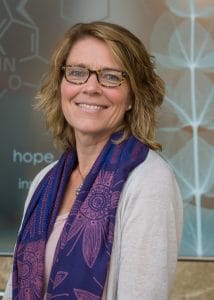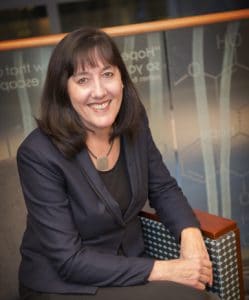End-of-life care offers challenges to clinicians

Until recently, talk of death and dying was a subject often avoided. However, medical professionals and some segments of the general population have come to understand the value of hospice, palliative, and end-of-life care.
According to Karen M. Fasciano, Psy.D, director of the young adult program at Dana Farber/Brigham & Women’s Cancer Center, in the last few decades, society has seen a cultural shift when it comes to end-of-life care. Offering this care can help relieve physical and mental suffering at end of life as well as during bereavement, by providing psychological, social, and spiritual support.
Fasciano indicated that the end of one’s life can be a time to reflect on some universal themes: your memories, regrets, triumphs, and hopes.
However, this process may pose unique psychological challenges, dependent on where a person is on the developmental spectrum. For instance, Fasciano noted that young adults facing imminent death may not be living with family or given the chance to accomplish goals.
“Some young adults struggle to accept the fact that they could die,” she said. “At the other end of the spectrum, a 92-year old individual might be ready to leave the earth and find relief.”
For parents facing the loss of a child, this situation is especially difficult for both parties. “It is unusual and emotionally painful to experience the death of a young child,” Fasciano said. The therapist can find herself supporting the parents in explaining death to their child, while also preparing the parents for life after the child’s death.
“While it might sound cliché, the degree of grief can be exponential to the number of years lost. The more years lost, the more acute the bereavement,” said Fasciano. “A child has not had time to live out all the expected moments in a given life. This is an important area for intervention.”
Regardless of age, temperamental differences may affect a person’s psychological preparedness for death, according to Fasciano. “People use their defensive structures differently and while for one-person denial can be adaptive for some aspects of illness, for other aspects, it can limit the person’s ability to complete important emotional tasks at end of life.”

Sue E. Morris, PsyD, director of bereavement services at Dana-Farber/Brigham & Women’s Cancer Center.
Sue E. Morris, PsyD, director of bereavement services at Dana-Farber/Brigham & Women’s Cancer Center, runs bereavement support groups that bring people in similar situations together. These sessions involve discussion, contemplation, and reassembly to process the information and adjust to their loss.
This model attempts to normalize the experience, offer psycho-educational guidance and emphasize the importance of “telling your story.” The group setting gives permission to do this and to learn how to plan for “firsts.” Morris said, “Counseling can help people explore what is happening.”
Morris also uses cognitive behavioral therapy (CBT) strategies in her groups to help participants process grief, which often comes in waves. The group experience “…gets to the heart of isolation and helps individuals form connections, tackle isolation, and foster empathy,” she said.
In addition to counseling and group therapy, Fasciano reported that some individuals devise their own personal legacy practices. She cited one mother who was dying and used an “intentional integration” approach. She put notecards with personal messages on them into her child’s lunchbox. These cards later became her legacy, keeping her integrated into her child’s life, once the mother died.
Fasciano explained that other tools offer a more global approach to planning for death. Five Wishes, an advance directive that meets medical and legal criteria, asks questions that address personal, emotional, and spiritual issues important to the individual. The document serves as a health care proxy and also explicitly states the values and choices of the individual.
“My Gift of Grace,” a card game that leads to meaningful conversations, fosters discussions around death, which have become more socially acceptable. “Death is just another chapter of life,” Morris said. “Look how much we prepare for birth. Death deserves as much attention.”
End-of-life work can take a toll on the clinician so it’s important to practice good self-care, according to Morris. She said, “You have to have the ability to debrief, talk or text with someone, create a buddy system. Acknowledge that the work is hard and look after yourself, recharge your battery.”
“Our job is not to cure illnesses like cancer but the cures we provide can help patients reduce emotional suffering and make peace with death,” Fasciano added.
Humans are wired to find meaning in things, according to Fasciano. “We attempt to rationalize why we or a loved one has become sick, but meaning can come in many forms at the end of life and is unique to each person. Letting go of how we think it should be and asking ourselves about what it is can, helps us find our unique meaning to a universal life experience.”
